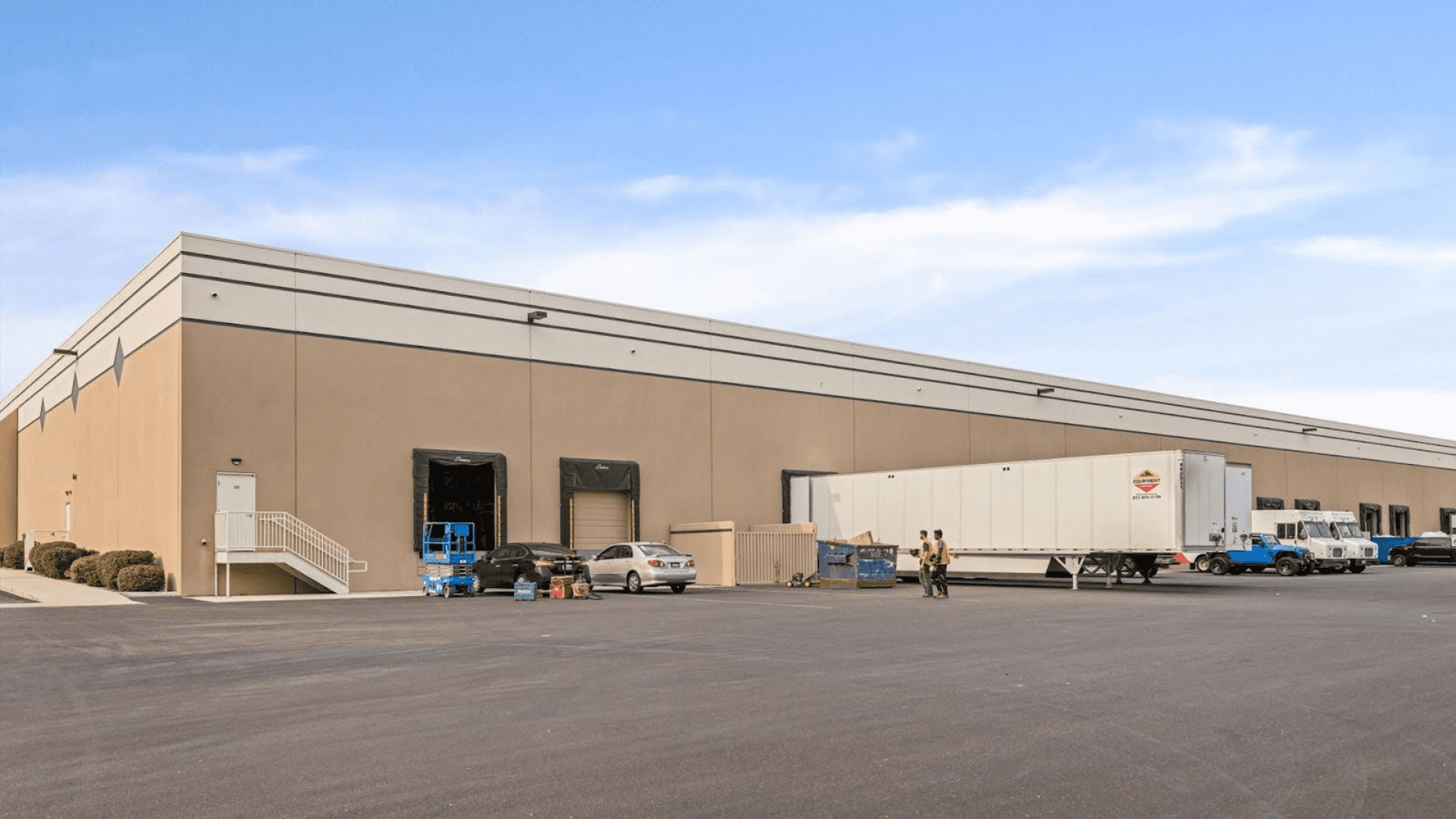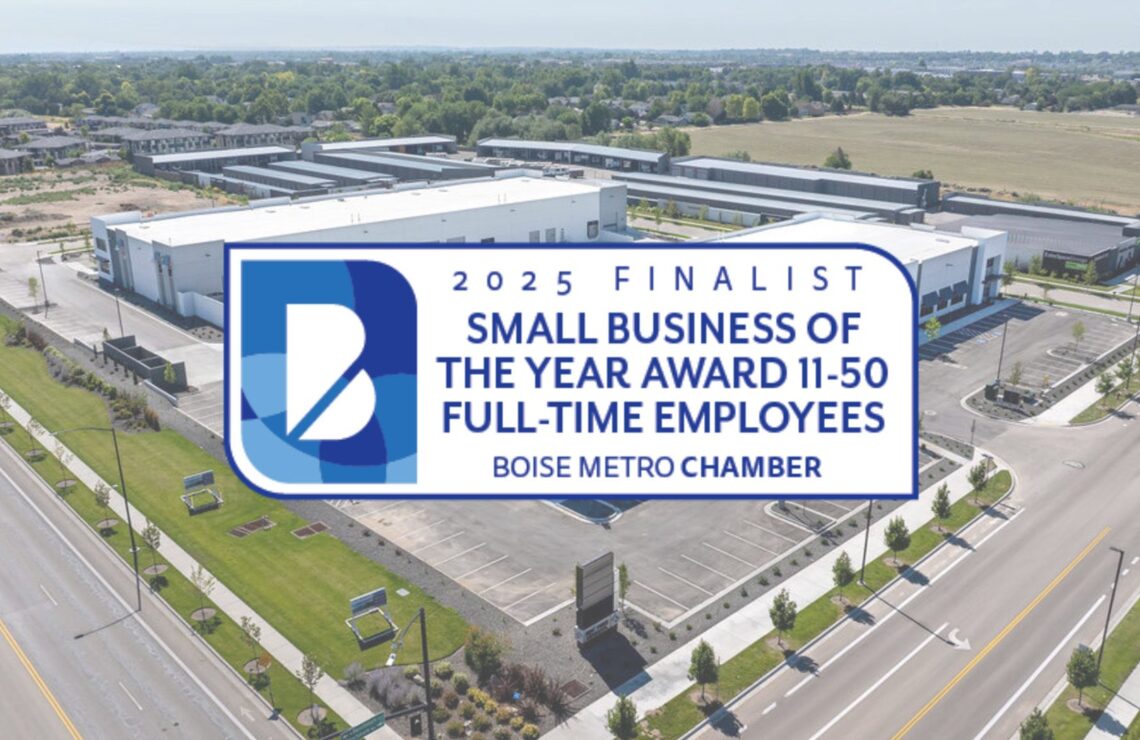In recent years, commercial industrial real estate has emerged as a powerful and increasingly attractive investment option for individuals and institutions alike. This shift has been largely fueled by the rapid rise of e-commerce, which has reshaped global supply chains and significantly increased the need for warehouses, manufacturing facilities, and distribution hubs. As online shopping becomes the norm and same-day delivery expectations grow, companies are scrambling to expand their logistics networks, driving up demand for strategically located industrial spaces. Unlike traditional commercial properties like office buildings or retail centers, industrial assets offer remarkable flexibility, often accommodating a wide range of tenant needs with minimal modification. This versatility allows property owners to adapt to market changes more easily and sustain lower vacancy rates. Additionally, industrial leases often span multiple years and are structured as triple net agreements, which shift many ongoing costs, like maintenance and taxes, to the tenant, making income streams more predictable and passive for investors. With fewer management responsibilities, reduced capital expenditures, and growing market demand, industrial real estate has become a resilient, long-term play in a world full of financial uncertainty.
Still, the decision to invest in commercial industrial property for sale should come with informed consideration. While the sector offers compelling advantages like scalability, steady returns, and a strong hedge against market volatility, it also requires strategic insight to navigate effectively. Location remains a key factor, properties near major highways, ports, or urban centers often yield better returns. However, critical elements like ceiling height, loading dock design, and zoning regulations can also make or break a deal. That’s where a knowledgeable advisor becomes essential. At Adler Industrial, we specialize in guiding clients through every stage of the process, from identifying high-potential opportunities to managing the finer details of closing. Whether you’re new to real estate or expanding an established portfolio, we help you leverage the strengths of industrial assets to build sustainable, long-term wealth. As industrial real estate continues to outperform in an evolving economy, now may be the perfect time to explore how this dynamic sector can elevate your investment strategy.
What Are Commercial Industrial Properties?
- Warehouses: The Backbone of Storage and Logistics: Warehouses are one of the most fundamental types of commercial industrial properties, primarily serving as storage centers for goods before they move through the supply chain. These spaces come in various sizes and configurations, from compact facilities supporting local businesses to vast, state-of-the-art structures catering to national or global logistics. Modern warehouses are often outfitted with high ceilings, climate control systems, and advanced racking solutions to maximize storage capacity. They play a critical role in supporting e-commerce companies, wholesalers, and manufacturers by providing the infrastructure needed to store inventory efficiently and fulfill orders promptly. In today’s digital economy, where consumer expectations for fast shipping are at an all-time high, warehouses serve as the logistical linchpins that keep supply chains moving and businesses competitive.
- Manufacturing Plants: Where Products Come to Life: Manufacturing plants represent a crucial segment of industrial real estate, serving as the sites where raw materials are transformed into finished goods. These properties are typically equipped with specialized features such as reinforced flooring for heavy equipment, ample electrical capacity, and ventilation systems tailored to industrial processes. Many also include office spaces, loading docks for shipping and receiving, and storage zones for raw and finished materials. Due to the complex logistics involved in manufacturing, these plants are often situated in regions with strong transportation infrastructure, near highways, railroads, or ports, and access to a skilled labor pool. Whether producing consumer goods, industrial parts, or food and beverage products, manufacturing facilities are essential to the broader economy and require significant planning and customization, making them long-term investment opportunities in the commercial real estate sector.
- Distribution Hubs: Streamlining the Flow of Goods: Distribution hubs, or distribution centers, are strategically designed to serve as pivotal points in the movement of goods from producers to end-users. Unlike warehouses that often serve long-term storage functions, distribution hubs focus on rapid turnaround, ensuring that items are quickly received, sorted, and shipped out again. These properties are typically large-scale, high-volume facilities equipped with sophisticated logistics technologies, including automated sorting systems, conveyor belts, and data-driven inventory tracking systems. Their proximity to major highways, airports, and rail lines is a key advantage, enabling efficient transport across regional or national markets. In an age where just-in-time delivery models are standard, these hubs support the high-speed operations of retailers, third-party logistics providers, and e-commerce companies. As such, distribution hubs are among the most sought-after industrial property types for investors and tenants alike, thanks to their crucial role in the fast-paced world of modern logistics.
- Hybrid Spaces (Flex Properties): Versatility for Modern Businesses: Flex properties, also known as hybrid spaces, are among the most adaptable types of industrial real estate. These buildings are designed to support multiple business functions within a single property, typically combining office space with light industrial, warehouse, or even lab facilities. This versatility makes them especially attractive to startups, small-to-medium-sized enterprises (SMEs), and tech or research-based companies that need flexible environments for innovation, assembly, and administration. The design of flex spaces often includes a customizable interior layout, enabling tenants to reconfigure the space as their business needs evolve. These properties can also offer shorter lease terms, giving businesses room to scale operations without being locked into long-term commitments. In a commercial landscape that increasingly values adaptability, flex properties are becoming a favored choice among modern businesses seeking cost-effective and functional spaces.
Why Industrial Properties Stand Apart
Unlike traditional office buildings or retail storefronts, industrial properties are built with scalability, durability, and utility as their core design principles. They are often located in industrial parks or on the outskirts of urban centers, where space is more abundant and zoning laws are tailored for commercial activity. Their construction emphasizes large open floor plans, high ceilings, heavy-duty floors, and easy access for trucks and heavy machinery, features that aren’t typically found in other commercial property types. This structural flexibility allows industrial properties to serve a wide variety of tenants, from high-tech manufacturers and logistics firms to e-commerce startups and specialized producers. As a result, industrial real estate has become a resilient asset class, capable of weathering economic fluctuations better than many other segments. The combination of functionality and long-term tenant demand contributes to its appeal for investors looking to generate stable and predictable income.
Why Industrial Properties Are Gaining Popularity
- Lower Tenant Turnover Creates Long-Term Income Stability: One of the most attractive aspects of investing in industrial real estate is the remarkably low tenant turnover compared to office or retail spaces. Industrial tenants, such as manufacturers, logistics companies, or storage providers, typically sign long-term leases that can range from five to ten years or more. These businesses invest heavily in customizing and setting up their operations, including building out production lines or installing equipment, making them less likely to move frequently. This stability translates into fewer vacancies and reduced costs associated with marketing and re-leasing the property. For investors, that means a predictable cash flow and less concern about constant tenant replacement, resulting in a more secure, long-term income stream that’s easier to manage and forecast.
- E-Commerce Growth is Driving a Logistics Revolution: The dramatic rise of e-commerce has had a profound impact on the industrial real estate market. As consumers increasingly prefer online shopping for convenience and speed, companies need an extensive and efficient logistics network to fulfill orders rapidly. Giants like Amazon, Walmart, and Target are leading the charge by investing heavily in warehouse and distribution infrastructure. But it’s not just the mega-corporations, small and mid-sized businesses are also entering the e-commerce space and seeking industrial space to support their operations. This surge in demand has significantly increased the need for last-mile delivery hubs, cold storage facilities, and large fulfillment centers. As a result, industrial properties have become a vital part of the digital economy, positioning them as one of the most future-proof real estate investments available today.
- Supply Chain Innovations Are Reshaping Industrial Needs: In recent years, supply chain management has undergone rapid innovation, and industrial real estate has been at the center of this transformation. The growing use of automation, robotics, inventory optimization software, and real-time tracking has redefined what tenants expect from an industrial facility. Companies now seek smart warehouses that can support high-tech operations, streamline their logistics, and reduce delivery times. Proximity to highways, ports, and transportation hubs has also become increasingly important. These logistical efficiencies make certain industrial properties more valuable, especially those that can adapt to evolving technologies and operational needs. For investors, this means greater potential for rent growth, tenant retention, and long-term appreciation as demand for modern, tech-enabled industrial space increases.
- Versatility Makes Industrial Space Appealing Across Sectors: One of the standout features of industrial real estate is its adaptability. Unlike office spaces that require specific layouts or retail spaces with storefront design constraints, industrial properties can be repurposed with relative ease. They can serve a wide variety of industries, from heavy manufacturing and assembly to light industrial, storage, distribution, and even biotechnology or clean energy production. In today’s fast-changing economic landscape, that kind of flexibility is gold. It allows owners to attract a diverse mix of tenants and reduce their exposure to any one industry’s ups and downs. This broader appeal also helps keep vacancy rates low and ensures that the property remains functional and desirable regardless of industry shifts, giving investors greater peace of mind and long-term occupancy security.
- Industrial Real Estate Offers Resilience in Uncertain Time: In periods of economic uncertainty, industrial real estate tends to outperform other commercial sectors like retail or office. This resilience is largely because the need for essential goods, distribution, and storage continues even when consumer spending slows or businesses downsize. Whether it’s food and beverage distribution, medical supply storage, or basic manufacturing, industrial operations are less vulnerable to consumer mood swings or remote work trends. This makes industrial property a strong hedge against market volatility. Investors benefit from reduced risk, more consistent occupancy, and sustained demand, even when the broader economy is under pressure. In fact, many investors have turned to industrial assets specifically because of their historical ability to weather economic downturns with minimal disruption.
- Industrial Properties Remain a Pillar of the Commercial Sector: The continued growth and strength of the industrial real estate market have cemented its status as one of the most resilient and rewarding sectors in commercial property investment. Its combination of long-term leases, growing tenant demand, technological adaptability, and insulation from market instability makes it an appealing choice for investors seeking both income and capital appreciation. As supply chains evolve and consumer habits continue shifting toward fast, convenient delivery models, the need for well-located, high-performing industrial properties will only intensify. This creates a window of opportunity for investors to enter or expand within a sector that is not only thriving now but is positioned for sustained success well into the future.
Common Myths About Industrial Property Investments
Despite the clear benefits, many potential investors still have reservations about commercial industrial properties. Let’s address some of the common myths that may be holding you back from seizing this lucrative opportunity:
- Myth 1: Industrial Properties Require Too Much Maintenance
It’s a common misconception that industrial properties are high-maintenance investments. In reality, most industrial facilities are designed with efficiency and durability in mind. These properties typically feature simple layouts, concrete floors, high ceilings, and minimal decorative elements, which translates into fewer ongoing maintenance requirements compared to retail or office buildings that often need frequent cosmetic updates, HVAC service, and common area upkeep. Maintenance responsibilities in industrial spaces usually revolve around basic structural integrity, roof inspections, and ensuring that any installed systems like loading docks, sprinkler systems, or warehouse lighting are operational. Additionally, in many leasing arrangements, tenants are responsible for a significant portion of the upkeep, further reducing the burden on the property owner. This makes industrial assets relatively hands-off, especially for investors looking for a long-term, stable asset class.
- Myth 2: These Properties Are Only Suitable for Large Investors
Another widely believed myth is that industrial real estate is reserved for institutional investors or large firms with deep pockets. While it’s true that massive distribution centers or manufacturing hubs can command high prices, the industrial real estate market is incredibly diverse. Many smaller industrial properties, such as single-tenant warehouses, light manufacturing units, or flex spaces that combine office and warehouse functionality, are well within reach for individual investors or small partnerships. In fact, these smaller assets often present excellent entry points into the commercial real estate market, offering lower acquisition costs and the potential for attractive cash flow. Financing options are also available through commercial lenders or real estate investment groups, allowing smaller investors to pool resources and reduce risk. This makes industrial property investment accessible to a much broader audience than many assume.
- Myth 3: Industrial Tenants Are Hard to Find
One of the biggest shifts in commercial real estate over the past decade is the explosive growth in demand for industrial space. With the rise of e-commerce, logistics, last-mile delivery, and regional manufacturing, industrial facilities have become essential infrastructure for countless businesses. Markets like Boise have seen significant economic expansion, driving a persistent need for well-located industrial properties. Vacancy rates in many regions remain historically low, and tenants are often looking to sign long-term leases to secure their operational bases. Contrary to the myth, many investors discover that finding qualified tenants is actually easier in the industrial sector than in office or retail, where shifting consumer habits and remote work trends have led to increased vacancy rates. The stability of industrial leases, often triple-net and long-term, adds another layer of predictability and appeal for property owners.
By addressing these myths, investors can make more informed decisions and realize the true potential of industrial property investments. Instead of shying away due to misinformation or outdated assumptions, taking the time to understand the real dynamics of the market can open doors to stable income, long-term value growth, and a portfolio that thrives in a changing economic landscape. Industrial real estate offers scalability, demand resilience, and strong fundamentals that continue to make it one of the most compelling opportunities in today’s commercial property sector.
Is Industrial Property The Right Fit for You?
Investing in commercial industrial property is not for everyone. It involves a distinct set of considerations that go beyond what’s typically required for residential or even other types of commercial real estate. Before jumping in, it’s crucial to take a step back and ask whether this type of investment suits your risk tolerance, timeline, and broader financial strategy. While industrial properties can offer significant rewards, they also come with unique challenges that demand a more hands-on approach, or the willingness to work closely with professionals who understand the nuances of the industrial real estate landscape.
- Investment Goals: Are you seeking steady income, long-term appreciation, or portfolio diversification? Industrial properties are often valued for their long-term stability and predictable cash flow, especially when backed by reliable tenants under multi-year lease agreements. These assets tend to generate consistent income over time, particularly in growing logistics hubs or manufacturing corridors. However, this level of stability usually requires a longer holding period, meaning your capital may be tied up for several years before you realize major gains. Moreover, some investors use industrial properties to hedge against volatility in other asset classes, like stocks or residential housing. If your primary goal is fast returns or high liquidity, this might not be the right path, but if you’re focused on building wealth over time through a dependable income stream, the industrial sector can be an ideal fit.
- Specialized Leasing and Zoning: Industrial properties often involve complex leasing agreements and zoning regulations that may require additional expertise. Tenants in these properties often need customized features, like loading docks, high ceilings, reinforced flooring, or proximity to transportation routes. Lease agreements can include clauses tied to specific operations or improvements, which adds layers of complexity compared to standard commercial leases. Furthermore, zoning ordinances for industrial land can be restrictive and vary widely by municipality. These rules dictate how the property can be used, what types of businesses can operate there, and what improvements can be made. Navigating these issues successfully requires either a solid understanding of local regulations and lease structures or the willingness to partner with an experienced advisor who can interpret the details and protect your interests.
- Financing: Industrial properties typically require a higher upfront capital investment than residential or smaller commercial properties. From the down payment to due diligence costs, inspections, and capital improvements, the financial barrier to entry can be significant. Lenders also scrutinize these deals differently, often requiring detailed business plans, tenant information, and environmental assessments before approving financing. It’s important to assess your liquidity, borrowing capacity, and long-term financial plan before committing. Do you have the capital reserves to cover periods of vacancy, unexpected repairs, or tenant improvements? If the answer is yes, the long-term return on investment could make it worthwhile. If not, the risk of financial strain could outweigh the potential rewards. Being realistic about your financial preparedness is essential to avoiding missteps.
At Adler Industrial, we specialize in helping investors assess whether industrial properties align with their financial objectives and provide expert guidance on making informed decisions. We understand that each investor brings a unique set of priorities, goals, and comfort levels to the table. That’s why we take the time to learn about your financial situation, your risk tolerance, and your long-term vision before offering tailored advice. Whether you’re a first-time investor exploring the industrial sector or a seasoned professional expanding your portfolio, we can help you evaluate opportunities with clarity and confidence. From analyzing market trends and zoning constraints to structuring leases and securing financing, our expertise is here to guide you every step of the way.
Boise and the Industrial Advantage
Boise, Idaho, offers a compelling case for industrial property investment, thanks to its strategic location and rapid economic growth. Positioned centrally within the Pacific Northwest, Boise acts as a key logistical hub with direct access to major highways, rail lines, and a growing airport network, making it ideal for distribution and manufacturing operations that require regional and national reach. Compared to larger West Coast cities like Seattle or Portland, Boise provides more affordable land and operating costs, making it increasingly attractive to businesses aiming to optimize supply chains and reduce overhead. The city’s population continues to grow steadily, bringing with it a stronger labor force and a rising consumer base. This growth, combined with a pro-business climate, tax incentives, and a streamlined permitting process, has encouraged companies across diverse industries, such as tech, food production, advanced manufacturing, and warehousing, to either relocate or expand their footprint here. These economic and demographic trends are driving robust demand for industrial space and creating excellent conditions for long-term rental income and property appreciation.
At Adler Industrial, we leverage deep market expertise to help investors tap into Boise’s evolving industrial landscape. With years of experience in the local market, we understand the nuances of zoning, infrastructure developments, and emerging submarkets, insights that can make or break a real estate investment. Whether you’re pursuing stable cash flow, long-term asset growth, or value-add projects, we align your goals with properties that offer the most upside. As demand increases and supply remains competitive, acting early in Boise’s industrial boom can yield significant returns. Reduced vacancy rates, rising lease activity, and continued corporate interest in the region all point to a market that’s ripe for strategic investment. When you work with Adler Industrial, you gain more than a broker, you gain a partner who offers tailored guidance, market intelligence, and hands-on support through every stage of your investment. Let us help you identify the right opportunities and secure your place in one of the Pacific Northwest’s most promising industrial markets. Reach out today to start your Boise investment journey.
Adler Industrial: Your Partner in Smart Investments
At Adler Industrial, we simplify the process of buying industrial properties by bringing expertise, strategy, and unmatched market access to every transaction. Our team offers more than just property listings, we provide access to exclusive, high-yield opportunities that often don’t make it to the public market. Whether you’re a first-time investor or an experienced buyer looking to expand your portfolio, we tailor our insights to align with your financial goals, risk tolerance, and long-term vision. We don’t just find properties, we help you understand the broader market landscape, assess the value of each asset, and anticipate the impact of economic trends on your investment. From legal regulations and zoning restrictions to financing options and tax considerations, we guide you through each step so you can make decisions with confidence and clarity. With our support, you’ll be positioned to maximize your returns while minimizing risk and stress.
Commercial industrial properties represent a tremendous investment opportunity with both short- and long-term benefits. They offer a level of stability and income potential that is often unmatched by other asset classes, especially in uncertain economic times. Industrial assets, such as warehouses, distribution centers, and manufacturing facilities, are in high demand due to the growth of e-commerce, logistics, and last-mile delivery services. This consistent demand helps maintain occupancy rates and rental income, making them attractive to investors seeking predictable cash flow. Additionally, these properties tend to have lower management costs and longer lease terms, which means less tenant turnover and more reliable returns. Whether you’re seeking to generate passive income, hedge against inflation, or build a resilient and diversified portfolio, industrial real estate offers a compelling pathway to long-term financial growth.
At Adler Industrial, we bring clarity and strategic foresight to what can otherwise be a complex and time-consuming process. We understand that investing in Idaho commercial property involves more than just choosing a location and signing paperwork it requires a deep understanding of local markets, emerging growth zones, and evolving infrastructure developments. Whether you’re searching for warehouse properties for sale or evaluating long-term opportunities in logistics, distribution, or manufacturing spaces, our insights help you make informed, confident decisions.
We leverage our extensive industry knowledge and professional network to help you identify areas with strong potential for appreciation and tenant demand. Our advisors stay informed about regulatory shifts, economic changes, and investment trends so you can adapt your strategy and stay ahead of the curve. From identifying commercial industrial property for sale to due diligence, negotiations, and closing, we act as your partner every step of the way, ensuring your experience is seamless and results-driven.
Contact us today to explore how we can help you unlock the full potential of the industrial property market. With Adler Industrial at your side, you gain more than a real estate partner you gain a strategic ally committed to your long-term success. Let’s start the conversation and move your investment strategy forward with confidence.




